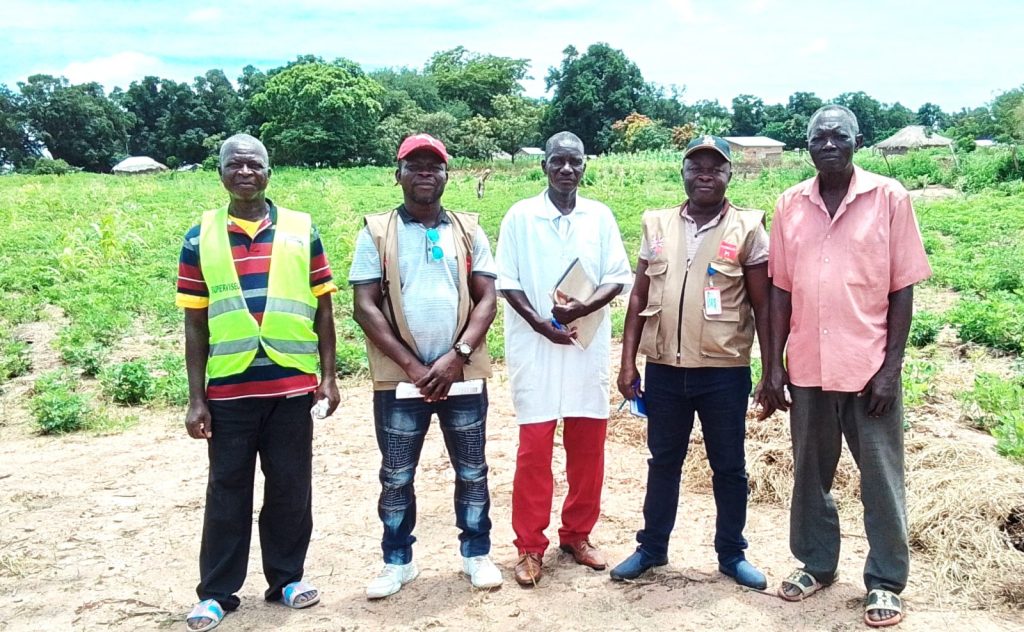The community in Begouladjé is growing groundnuts to self-finance their local health facility as a phase out approach of the UK aid-funded “Assistance to crisis-affected communities of the Central African Republic” project is implemented.
In the latter phase of the 14-year project, MENTOR worked with the community to raise awareness about financing primary healthcare services and moving to a sustainable model before its planned closure at the end of the year.
In Central African Republic, the health system is mainly supported by external actors and is designed to provide care to children under five years old and pregnant and breastfeeding women. Other groups need to pay for the services and medicines.
Fees paid by these groups must cover salaries, the maintenance of facilities and the medical supply chain, which often become too costly for the populations with low income. Solutions to cost-share have been discussed in several communities to improve access to healthcare for everyone.
In Begouladjé, the community management committee worked with local authorities to develop an agricultural initiative that will generate revenue to pay for medicines, health facility operational costs and transporting patients. A portion will also be allocated to buy seeds for the next planting season.
“We have the land, we are farmers and we have the seeds,” stated the president of the committee after all stakeholders agreed on the choice of growing groundnuts. Two fields were ploughed and sown at the start of the rainy season with all profits going to the local community.
The health facility in Begouladjé is on the border with Chad, 60 km away from Paoua, the district capital. Due to its remote location, the facility was hampered by a lack of medical supplies and personnel and was almost out of service when the project began in 2008.
Throughout the project MENTOR has supported the health facility through stocking the pharmacy, training staff, rehabilitating the facility, and ensuring free care for children under five-years old and pregnant and breastfeeding women.
By facilitating the transition to more sustainable development practices and away from purely humanitarian support, MENTOR is helping to meet the need for both types of work. In Central African Republic this is key to ensuring a robust and improved health service that serves everyone.
Caption: MENTOR Base Coordinator, Sosthene Safari (second from right) with the community management committee in front of one of the groundnut fields.
- News
Growing groundnuts to finance health facility
- Kathryn Johnson

